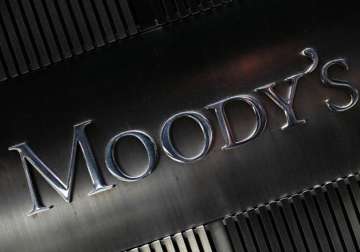Terrorism has long-lasting impact on Indian economy: Moody's
New York: With India facing fourth largest number of terror attacks across the world in 2013, such incidents have a significant and long-lasting negative impact on the economy, according to Moody's Investors Service."More than 60
New York: With India facing fourth largest number of terror attacks across the world in 2013, such incidents have a significant and long-lasting negative impact on the economy, according to Moody's Investors Service.
"More than 60 percent of all (terror) incidents in 2013 were concentrated in just four countries: Iraq (24 percent of terrorist incidents), Pakistan (19 percent), Afghanistan (12 percent) and India (5.8 percent)," it said in a report on Tuesday.
India in 2013 faced 690 terror attacks. Topping the list was Iraq with 2,852 incidents, followed by Pakistan (2,212 attacks) and Afghanistan (1,443 incidents).
In 20 years (from 1994 to 2013), India faced 6,024 attacks, a little less than tenth of 68,962 incidents worldwide.
Also Read: India to grow at 7.5 pc, faster than China: IMF
"Even normalised by the size of the country, Iraq and Afghanistan are at the top of the list with 82 and 47 incidents per million people, respectively, in 2013. This compares with a global average of 2.4 incidents per million people in 2013," it said.
Terrorist attacks, it said, are diverse in terms of the personal and property damage inflicted.
Moody's said its study shows that terrorist attacks significantly weaken economic activity, with long-lasting effects on the economy.
The study measures the impact of terrorism on a country's economic growth, investment growth, government expenditure and government cost of borrowing.
"For example, in 2013 the 10 countries most affected by terrorism took an immediate and significant hit to growth, dampening GDP between 0.5 and 0.8 percentage points," says Moody's Merxe Tudela. "Even worse is that the negative impact continues for years after the attack, taking up to five years for the effects to peter out."
Investment growth takes an even greater immediate hit, with Moody's estimating for the same episodes that investment growth declines between 1.3 and 2.1 percentage points.
"Terrorist events of the type and frequency seen in the top ten most terrorism-inflicted countries just in 2013 immediately weaken GDP growth between 0.51 percentage points (pps) and 0.80 pps; they further deteriorate growth between 0.37 pps and 0.59 pps after one year, and by 0.05 pps and 0.07 pps after three years," it said.
Terrorist attacks reduce investment growth (and hence impair potential growth) on the year of the terrorism event, by between 1.31 pps and 2.07 pps, for the top ten most affected countries.
Terrorist events lift the government cost of borrowing. In the most terrorist-inflicted countries, the cost of borrowing jumps between 41 and 65 basis points within one year and by 51-81 bps after one year of the event.
According to Moody's Libya (with 48 incidents per million people), Bahrain (44), Somalia (32) and Lebanon (27) are next by the number of terrorist incidents per million people in 2013.
In the mid-1990s, when the number of incidents per million people were close to the figures seen in the last couple of years, the countries with most incidents per capita where Bahrain and Lebanon again, but also, Colombia, Macau, Cyprus, Israel, Algeria, Burundi and Sri Lanka.
An analysis of Iraq shows that in the absence of any terrorist attacks from 2008 to 2013, GDP could have been 8.2 percent higher, and the cost of borrowing, 150 basis points lower by the end of that period.
A similar analysis of Pakistan indicates that GDP growth could have been 5.1 percent higher, and the cost of borrowing, 100 basis points lower.
Over the same timeframe, the level of investment in Pakistan could have been 9.3 percent higher, and in Iraq, 15.1 percent higher.
"When we break out these numbers, we see that Iraq and Pakistan have lost billions of dollars in GDP and investment," says Tudela.
Terrorist events also materially dampen economic activity and investment in mature economies.
Moody's analysed the economic impact of the September 11, 2001 attacks in the US, the 2004 bombings in Spain and the 2005 bombings in the UK, all of which resulted in significant human casualties and infrastructure damage.
In each case, the effect on economic activity and investment was significant and lasted several years.
Moody's study consisted of a sample of 156 countries between 1994 and 2013.
To properly measure the impact of terrorism on the economy, Moody's constructed an index of terrorism as a weighted average of the total number of terrorist incidents, the number of fatalities, the number of injuries and the property damage inflicted by the terrorist event.
The index also accounts for the size of the country and the concentration of terrorism in a few countries: an additional terrorist attack in a country with high incidence of terrorism would likely have a lower impact than if that same attack were on a country with zero terrorist events.
